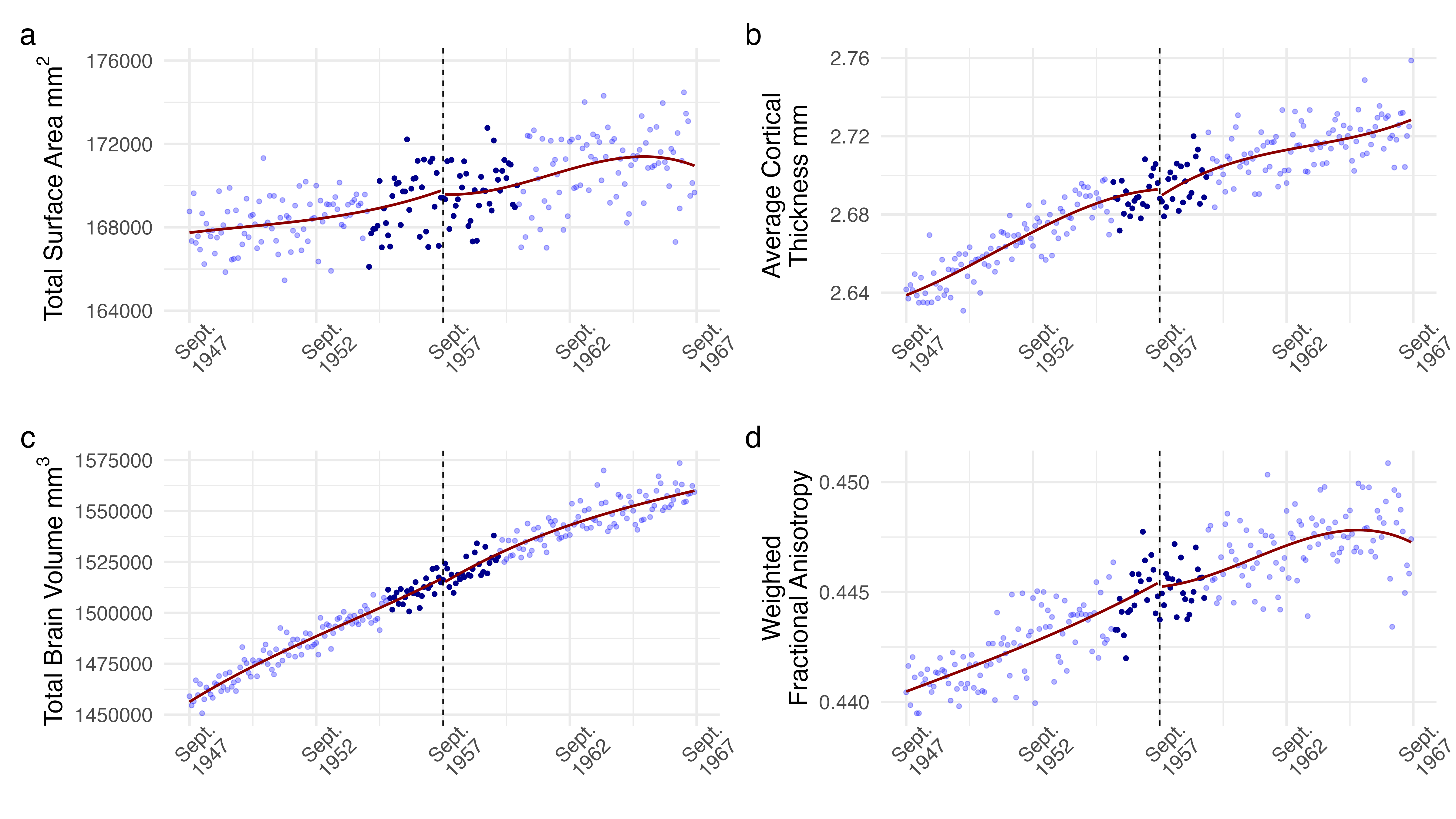Causal inference for neuroscience
- 2 minsNatural Experiments – a Tool for Causal Inference in Childhood Development
Understanding how the environment affects the brain is crucial, given the lifelong impacts of early neural and cognitive differences. Natural experiments leverage external changes in the environment (e.g., local policy changes or ecological events) to isolate environmental exposures. This is done with a cutoff which divides a population into an exposed and unexposed group. Crucially, it should be seen as a design rather than a statistical test - in turn, it is crucial to test the validity of the design. Under the right assumptions, these events with ‘random-like’ properties (i.e., exogenous) allow us to estimate the causal effect of environmental exposures on an outcome.

My empirical work using natural experiments to study the effect of schooling:
-
Judd, N., & Kievit, R. (2024). No effect of additional education on long-term brain structure: a preregistered natural experiment in over 30,000 individuals. In bioRxiv (p. 2024.05.17.594682)
-
Judd, N., Sauce, B., & Klingberg, T. (2022). Schooling substantially improves intelligence, but neither lessens nor widens the impacts of socioeconomics and genetics.NPJ Science of Learning, 7(1), 33.
Flux Science of Learning Symposia 2024
Nature and Nurture Contribution to Variation in Learning: Insights from Developmental Cognitive Neuroscience
This presentation is focussed on the results from my latest empirical paper studying the effect of an educational policy change in the UK (ROSLA) on long-term neural outcomes.
Association for Psychological Science Symposium 2024
Triangulating Mixed Methods to Support Causal Inference and Translation in Developmental Psychology
This presentation is focussed on how to use natural experiments as a tool for causal inference in childhood development.
Open Source Causal inference literature
Textbooks
A good book to start:
- The effect: an introduction to research design and causality by Nick Huntington-Klein.
More advanced:
- Causal Inference: What if? by Miguel Hernan & James Robins.
Applied methods PhD course by Paul Goldsmith-Pinkham
Regression Discontinuity Primers & packages
- Cattaneo, M. D., Idrobo, N., & Titiunik, R. (2019). A practical introduction to regression discontinuity designs: Foundations. pdf
- Cattaneo, M. D., Idrobo, N., & Titiunik, R. (2023). A Practical Introduction to Regression Discontinuity Designs: Extensions. pdf
- rdrobust R-package
- RDHonest R-package
Other relevant literature
- Schwartz, G. L., & Maria Glymour, M. (2023). Bridging the Divide: Tackling Tensions Between Life-Course Epidemiology and Causal Inference. Annual Review of Developmental Psychology, 5(Volume 5, 2023), 355–374. pdf